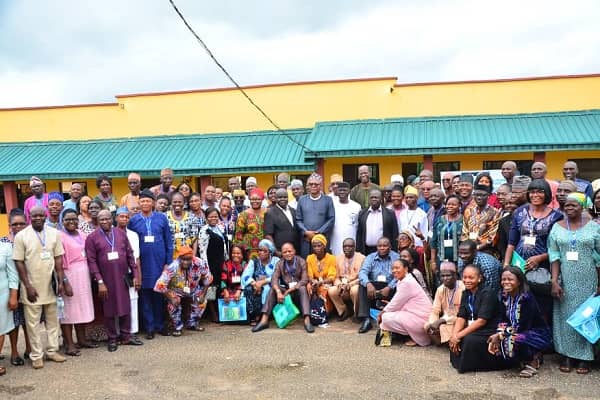The National Institute for Educational Planning and Administration (NIEPA) has trained head teachers, education officers, and principals in the southwest on effective school management.
The training, organized by NIEPA in collaboration with the Universal Basic Education Commission, took place during a five-day workshop in Ondo, Ondo State. The event attracted stakeholders from the six Southwestern states.
Speaking at the opening of the workshop, NIEPA’s Acting Director-General, Dr. Adebiyi Shofoyeke, stated that the training was designed to enhance the skills and knowledge of head teachers and principals in effective school management.
Dr. Shofoyeke reiterated NIEPA’s commitment to supporting a more educated population by increasing and strengthening the capacity of teachers and other educators through innovative and strategic training programs.
Emphasizing the importance of professional development for teachers in improving education quality, Dr. Shofoyeke stated that educators need to be equipped with the necessary skills to adapt to the needs of pupils and students. He stressed that school leadership plays a vital role in creating a conducive and inclusive learning environment and fostering a positive school culture.
Dr. Shofoyeke urged head teachers and education officers to embrace instructional leadership, team building, and collaborative problem-solving to address the challenges facing schools. He also highlighted the need for effective record and stress management, as well as mitigating the impacts of climate change in schools, to create meaningful changes in the country’s education system.
A communique issued at the end of the workshop identified several problems affecting the Nigerian educational system, including a shortage of teachers, unfavorable government policies, rural-urban migration, indiscipline, insecurity, under-enrollment in rural areas, and undue political influence.
The participants recommended policy changes to increase enrollment figures, employ qualified teachers, provide adequate resources in schools, compensate rural teachers, and address the challenges of multi-grade teaching.
